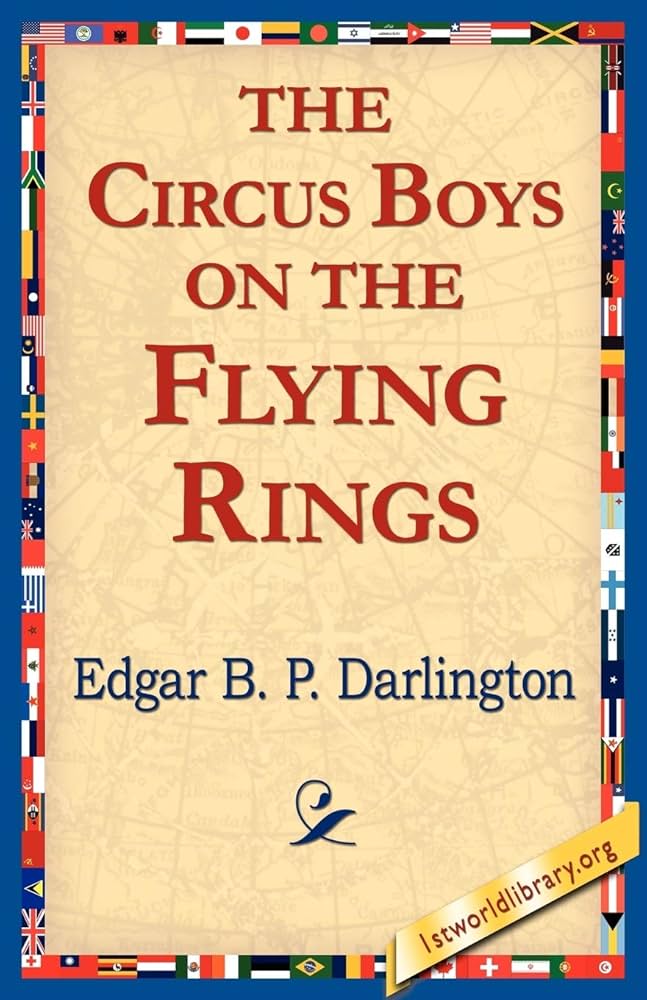Chapter IX — The circus boys on the flying Rings
byChapter IX opens with Phil Forrest still reeling from the unexpected adventure atop Emperor, the elephant. As the crowd cheers, his instinct isn’t to bask in applause but to ensure the animal doesn’t suffer for the unplanned spectacle. With quiet sincerity, he pleads with the keeper not to punish Emperor, displaying both maturity and compassion. That moment solidifies Phil’s place not just among the circus animals but among the people as well. While laughter and awe ripple through the audience, Phil humbly exits the ring, leaving behind a memory that others in the tent won’t easily forget. The crowd’s reaction reflects not only excitement over the stunt but admiration for a boy who handled a dangerous moment with calm and grace.
Rejoining Mrs. Cahill in the stands, Phil finds comfort in familiar faces but remains eager to reconnect with Teddy. As Teddy rushes in, flustered from a scolding over his own minor circus mishap, the pair quickly settle into watching the ongoing show. Their conversation bounces between awe and ambition as they critique the performers and speculate on salaries, showing just how deeply they’re invested in this world. Phil’s eyes light up at every feat, especially those on the flying rings, while Teddy’s playful sarcasm masks his own fascination. Their dialogue isn’t just banter—it’s the formation of dreams beginning to take root. They’re not content with being spectators for long; they want to become the ones flying above the crowd.
As the performance unfolds, Mademoiselle Mora’s act on horseback steals Phil’s attention. With elegance and strength, she captures the entire tent, though it’s her subtle nod toward Phil that sends Teddy into a jealous huff. Mrs. Cahill’s amused commentary softens the moment, reminding both boys of the social charm hidden within the circus’s grand illusions. Phil’s heroic elephant ride is soon immortalized in song by a clown, humorously sung in front of thousands. The act cements Phil’s position as more than just a face in the crowd—he’s quickly becoming a story within the show. The performance blends real experience with comedic exaggeration, and the crowd erupts in laughter, not knowing how much of the joke is rooted in truth.
The boys shift their attention toward the ring once more as a new act takes center stage—Rodney Palmer, a strong and graceful flyer. His ease on the rings draws admiration, especially from Phil, whose hands subconsciously grip the edge of his seat with the muscle memory of playground rings back home. Teddy, ever the entertainer, imitates Rodney with mock precision, causing a stir of chuckles around their section. Yet beneath the surface, both boys are absorbing every move, every technique. Their minds are no longer focused solely on the marvels of others but on how they might one day emulate them. It’s no longer just about being part of the circus—it’s about mastering a skill and earning respect within it.
Rodney’s brief glance toward the boys, paired with a casual salute, doesn’t go unnoticed. Phil beams, while Teddy feigns indifference but clearly feels a jolt of connection. That single moment, insignificant to the audience, acts as a bridge between dreamers and doers. Rodney’s gesture signals something greater: acknowledgement. It’s this recognition that plants the seed of confidence in both boys that perhaps their ambitions are not so far-fetched. As the performance closes, the boys rise with the crowd, applause echoing around them. But rather than leaving with only awe, they carry with them a subtle determination.
Later that evening, the conversation continues back at the wagon. Phil reflects not only on the acts but on the structure, timing, and dedication each performer showed. Teddy, half-listening while tossing his cap in the air, admits he wouldn’t mind being part of the parade or climbing the rigging just once. It’s a lighthearted exchange, but the idea begins to cement. Tomorrow might still find them in the stands—but they’re not planning to stay there for long. That mix of laughter and longing, of ambition and awe, captures the heart of their journey. In a world full of illusion, Phil and Teddy are chasing something real.
The chapter closes with lanterns dimming and crowds dispersing, but in the hearts of these two boys, something important has taken root. Through a mixture of luck, bravery, and fascination, they are becoming part of the circus in ways they hadn’t anticipated. The narrative reveals not just the spectacle but the emotional pull behind it—the sense of belonging, the draw of daring acts, and the possibility of carving out a role through courage and connection. For Phil and Teddy, the circus is no longer just an escape—it’s becoming home.

